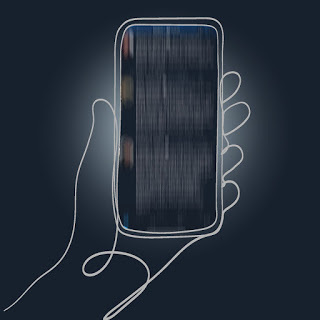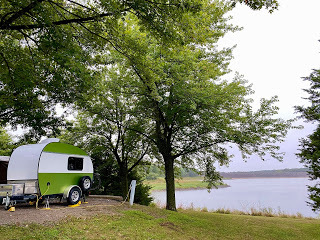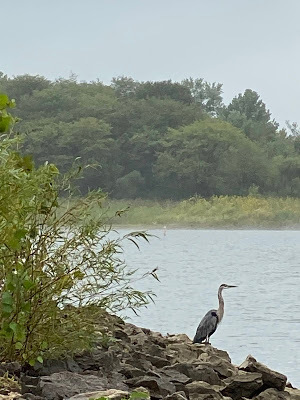Down with Doomscrolling!
 "Doomscrolling" and "doomsurfing" are new compound words Merriam-Webster is watching, "referring to the tendency to continue to surf or scroll through bad news, even though that news is saddening, disheartening, or depressing. Many people are finding themselves reading continuously bad news about COVID-19 without the ability to stop or step back." The "scrolling" compound highlights the use of the smartphone for skimming for bad news, the "surfing" referencing computer use, although the terms are pretty much interchangeable.
"Doomscrolling" and "doomsurfing" are new compound words Merriam-Webster is watching, "referring to the tendency to continue to surf or scroll through bad news, even though that news is saddening, disheartening, or depressing. Many people are finding themselves reading continuously bad news about COVID-19 without the ability to stop or step back." The "scrolling" compound highlights the use of the smartphone for skimming for bad news, the "surfing" referencing computer use, although the terms are pretty much interchangeable. And I am guilty of engaging in this activity. Guilty, guilty, guilty.
"Can you think of a better way to spend your time?" Merriam-Webster asks, adding, "Remember to take some time away from your phone today." Yes! As one friend said to me six months ago: "It's bad enough to let this virus into your body, much less your mind." Merriam-Webster continues to provide wise insight.
During times of crisis and uncertainty, some of us pay more attention to the news, looking for answers. And this might not surprise you, but we have to say it: a lot of the news is bad. And yet we keep scrolling, keep reading article after article, unable to turn away from information that depresses us.
Our friendly neighborhood dictionary provided some emotional support at the end of this "Words We're Watching" entry: "Whether you prefer to surf or scroll for your doom, don’t feel you need to take it in all at once. After all, tomorrow is another day."
 Rathbun Lake
Rathbun Lake
I was curious to see what strategies others have suggested to cut doomscrolling out of our day. And, yes, I went online to find out, but with a focus! In fact, here is my pre-research list of what I think I'll find, written down because this whole process--article and research--is really a bit of self-therapy to re-balance myself and to re-structure a more positive activity level for myself. It's part of my current two-week camping sojourn at local state park. Change of view, change of pace, and screw my head back on.
Health.com published a comprehensive article about doomscrolling: what it is, why it's bad, and how to stop. "Turns out your brain loves this stuff," a psychiatrist says, the ancient negatives like dodging saber tooth tigers has been replaced by more pervasive, insidious negatives that just hang on and on. The article's suggestions? First admit that you engage in the behavior and that it has a negative effect. Next, set a daily time limit (15 minutes a day, the article suggests). Finally, train yourself to identify positive events in your life and around you. (Find three positives a day, the article suggests.)

What I found interesting and useful about both articles is the mention of having a plan. Negativity can be like quicksand; the ground looks stable, but suddenly you're stuck and being pulled down. Plan to stay on higher, firmer ground. Create a habit of engaging in positive activities. I think my two-week "staycation" here on the lake is paying off: reading, writing, cooking, hiking and bicycling, and having a plan to limit my news intake. Hiking rather than scrolling! In fact, now that I've finished this article, I think I'll see what my neighborhood heron is up to. Wash your hands, wear a mask, and maintain social distancing to keep your body healthy . . . and, you know, the mental equivalent for those three measures ain't so bad either. Keep to positive online material, filter your internet activity, and distance yourself from your phone.
Well, okay, for me it is literally a new dawn on the lake, and I'm looking forward to this new day.

Enter your email address:
Delivered by FeedBurner




